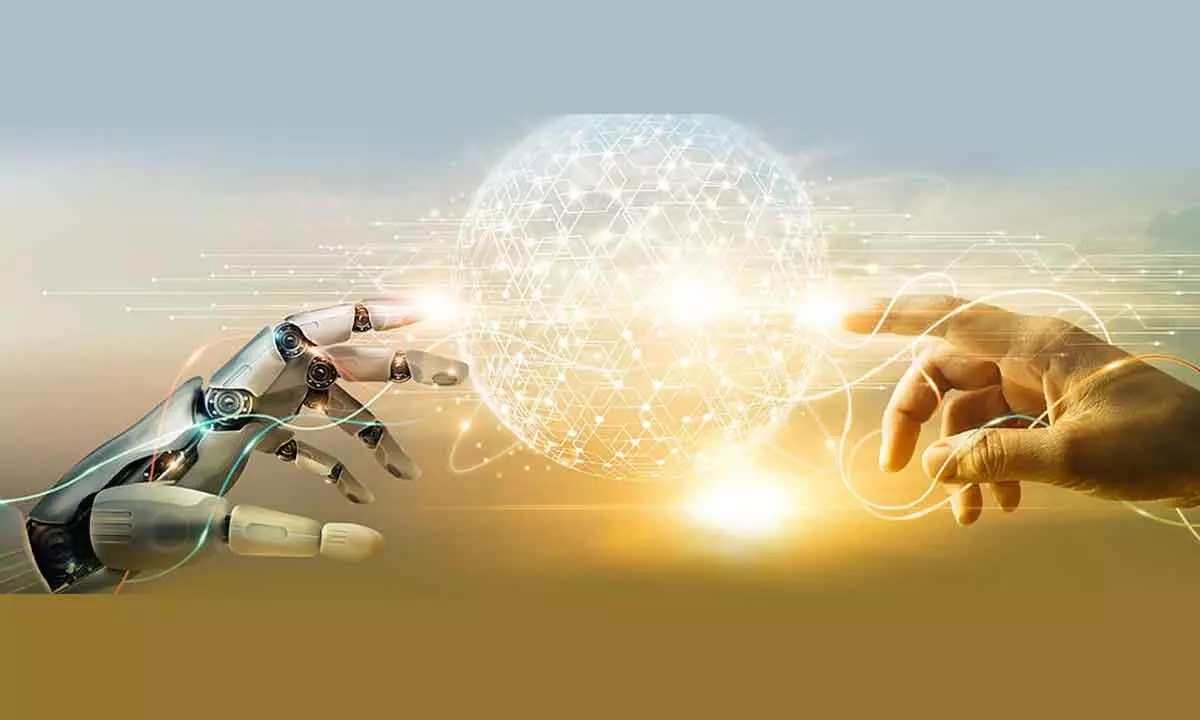AI could de-skill humans
NAOP meeting explores how AI will change the workforce
image for illustrative purpose

Visakhapatnam: The thirty-third annual conventions of the National Academy of Psychology (NAOP) held here at the campus of GITAM deemed to be university on Thursday discussed threadbare on the role of AI in augmenting and deskill humans.
The convention provided a platform to researchers to present, discuss, and debate issues that confront individuals, groups, and communities in this fast-changing world.
The researchers presented very interesting topics during the convention. The increasing use of AI has the potential to both augment and deskill among humans, observed by Sardar Patel University of Police (Jodhpur) behavioral sciences assistant professor Dr Abhishek Sharma during the thirty-third annual convention of NAOP. He pointed out that people are using AI for every small and simple task even with higher trust and greater ease, without realising the simultaneous decrement happening in their cognitive and creative capacity.
He said that during their study they observed higher anthropomorphism and trust in AI were significantly linked to higher levels of deskilling.
Jagran Lakecity University (Bhopal) researcher Vedant Bharambhatt warned that excessive use of smartphones has been linked to negative effects on interpersonal relationships and people must maintain a balance between the benefits and drawbacks of smartphone usage.
Rajasthan University researchers Prof Ankita Sharma, Dr Prasenjit Tribhuvan and Jyothi Sharma observed that social media emerged as a significant contributor to escalation of communal violence with an increased engagement during conflicts further exacerbating the issue. The research team conducted a study in collaboration with the Rajasthan police to know various information sources during and after the event of communal tension.
West Bengal University Psychology Department researcher Dr Aloknanda Sinha mentioned that they have studied dream recall to understand the effects of various regions of the brain and effects of different cognitive factors which facilitate dream recall and enhance overall competency in various tasks. He revealed that his research team found significant differences in different sleep stages and brain reactivity.
Loneliness is a growing concern faced by Indian urban youth, observed IIM Indore assistant professor Raina Chhajer. She said that they conducted semi-structured interviews between 23-28 age groups who are living away from their families in the urban areas. She mentioned that their research findings reveal that to combat loneliness most of the youth take unhealthy measures which might further impact their mental health and well-being adversely. Healthy measures like investing in a hobby, practicing art, learning new skills, volunteering, spending time with nature and practicing yoga were found to be used to combat loneliness, she added. Allahabad University and Banaras Hindu University researchers Meenakshi Shukla, Niti Upadhyay shared their research findings of psychosomatic problems among adolescents during and after Covid-19.

